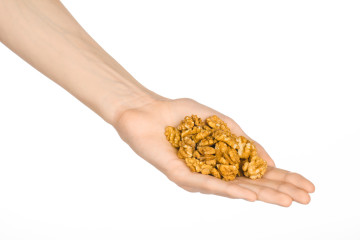Can Adding Soy To Your Diet Make You Healthier?

By C. Storey
Since 1994, the United Soybean Board (USB) has conducted annual surveys to collect evidence about soybean consumption among Americans. Their 2015 survey revealed that 78% of the 1,000 random survey subjects consumed soybeans regularly, which was an 11% increase from the 2011 survey (67%). The findings revealed five contributing factors which led to the increased intake:
- The desire to eat more healthfully
- An abundance of new soy foods
- Ethnic population growth
- An interest in sustainable foods
- Its popularity among millennials
In support of soybean consumption, Michelfelder (2009) encourages using them as a dietary substitution for higher-fat animal products. That is advised because soybeans “contain all of the essential amino acids necessary for human nutrition and have been grown and harvested for thousands of years.” Michelfelder does, however, assert that soy, given as supplements, does not have the same results as whole soy.
A review of the scientific literature reveals some support for Michelfelder’s claims. Indeed, over the past two to three decades, scores of studies have found evidence for and against the use of soy for health benefits.
It is worth mentioning that a large amount of the evidence supports its use for treating and preventing a variety of conditions. As one example, studies suggest that the isoflavones in soy may help to lower cholesterol and blood pressure, as well as prevent diseases in the heart and blood vessels.
In other examples, some studies suggest that consumption of isoflavones and phytoestrogens may provide protection against certain cancers, including lung, endometrial, prostate and thyroid.
Concerning breast cancer, a study by the Physicians Committee for Responsible Medicine (pcrm.org) notes that the evidence indicates that “soy products may reduce the risk of breast cancer and breast cancer recurrence.” Additionally, the “benefits of soy products appear to relate to traditional soy products, not to concentrated soy proteins.”
There is also scientific evidence that soy isoflavones may be effective in lowering blood glucose in type 2 diabetes, slowing the progression of kidney diseases, improving mental cognition, preventing osteoporosis, and preventing hot flashes, symptoms of menopause and premenstrual syndrome, which is known as PMS.
Although there are many health benefits of soy consumption, it is necessary to advise that adverse reactions to soy may occur in individuals with allergies. Also, according to the Natural Medicines Comprehensive Database (2015) interactions could occur with some antibiotics, anti-hypertensive, anti-diabetic, estrogen and thyroid medications.
For example, individuals who use Coumadin, Tamoxiphen, certain diuretics, herbal supplements and supplements that lower blood glucose levels in conjunction with soy may find that the combination interferes with iron absorption.
Due to these potentially harmful interactions, soy consumers should discuss with their healthcare providers all of their prescribed and over the counter medications as well as any plant-based foods that they consume.
In conclusion, current evidence-based studies have shown that there are possible benefits in consuming soy for one’s health. However, as with any product, substance, or medicine, consumers should make themselves thoroughly knowledgeable about the associated benefits and risks involved.
Please note: That any suggestions are based on personal experiences and knowledge garnered from self-education and/or readily available news sources. Sources are available upon request. Neither Menofvalue.com or any of our writers offer any guarantees or are responsible for the consequences for any advice taken.
United Soybean Board (USB) – Soy Checkoff. (n.d.). Retrieved from unitedsoybean.org







No Comment